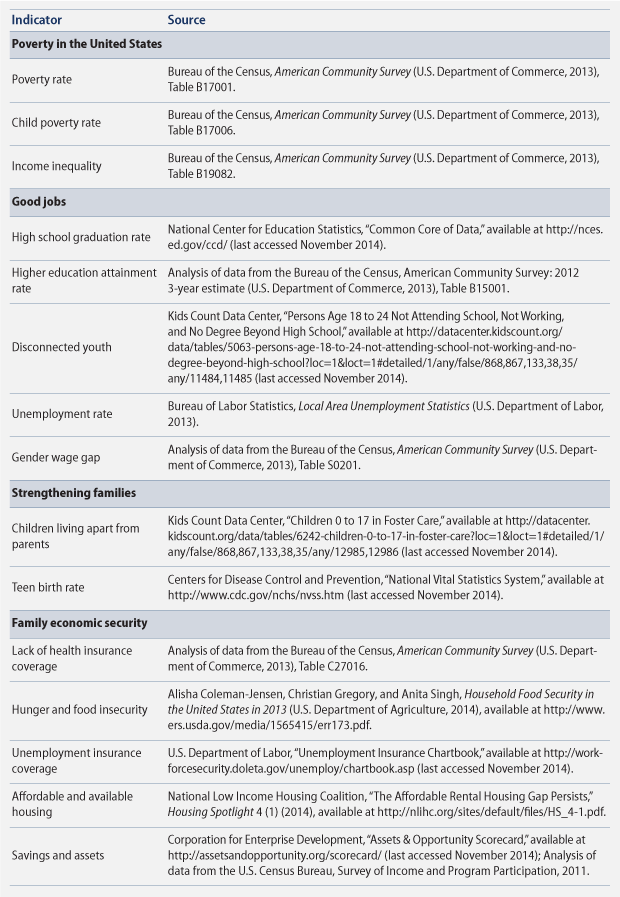In 2013, the nation’s official poverty rate still remained unacceptably high at 14.5 percent. Some 45.3 million Americans were living in poverty—defined as $23,834 per year for a family of four. Each year, Half in Ten, a partnership campaign with the Center for American Progress Action Fund, the Leadership Conference on Civil and Human Rights, and the Coalition on Human Needs, publishes an annual report that examines 21 different indicators of economic security and opportunity to help better understand where the country is improving the situation for American’s struggling families and where the nation must do a better job.
While our annual report, ”Building Local Momentum for National Change,” focuses on how we are faring on the national level, the Center for American Progress Action Fund issues a companion report, which provides a comparative look at the states. For each of the 15 indicators examined in our national report, CAP ranks the states in comparison to one another and highlights policies to improve those indicators.
The good news is that our economy is growing again, but too many low-income families are not seeing any benefit. Instead, stagnant low-wages, unaffordable housing and child care, and a lack of health insurance coverage are only a few of the challenges that Americans face as they try to make ends meet in an economy that simply isn’t working for everyone. However, the conversation about income inequality, poverty, and opportunity has started to shift, and while Congress seems incapable of passing common-sense anti-poverty policies on the national level, cities and states are forging ahead and raising the minimum wage, breaking down barriers to employment, extending access to paid sick days, expanding Medicaid, and more.
Acknowledging the current political reality, it is the states and people on the ground who can effectively advocate for the policies that will build a more inclusive economy. To make substantive change and dramatically reduce poverty in America, we must harness the momentum on the state and local level. As Rev. William Barber, the president of the North Carolina NAACP and leader of the Moral Mondays movement, “If you want to change America, you gotta think states.”

Sarah Baron is the State Advocacy Coordinator for American Progress Action.